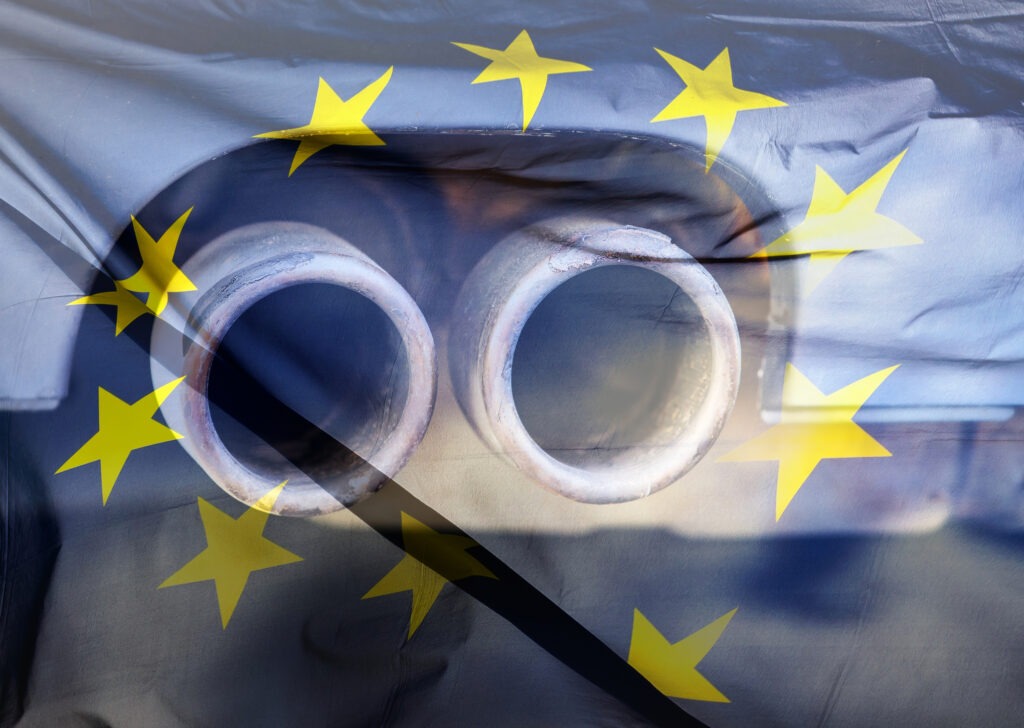Which carmakers are struggling with the UK ZEV mandate targets?
04 December 2024

The UK zero-emission vehicle (ZEV) mandate was intended to give carmakers a path to a greener automotive market. However, in its first year, it is already proving difficult for many. Autovista24 special content editor Phil Curry examines which brands are struggling to meet the 2024 targets.
With the end of 2024 fast approaching, so too is the deadline for carmakers in the UK to meet their zero-emission vehicle (ZEV) mandate requirements. This means that by the end of the year, 22% of their total sales must come from either battery-electric or fuel-cell electric vehicles.
However, the ZEV market is far from positive. A slowdown in battery-electric vehicle (BEV) sales has made the 22% threshold much harder to reach.
When the ZEV mandate was first unveiled in 2023, the UK automotive industry anticipated that around 457,000 zero-emission models would be registered in 2024, according to the SMMT.
However, the association’s latest outlook shows that around 94,000 fewer cars will be registered this year, totalling just 363,000 units. This would give a projected new-car market share of 18.7%.
‘The mandated targets have given manufacturers no option but to subsidise sales, incentivising fleet, business and consumer EV sales through an estimated £4 billion worth of discounts,’ the SMMT stated.
This situation has led to a meeting between representatives of the automotive industry and the UK government to try and amend the targets going forward. The main aim will be to lessen the financial impact of missing out on the targets.
Potential problems for carmakers
October new-car registrations data from the SMMT, and BEV delivery figures from EV Volumes, show the scale of the issue facing carmakers.
Taking the baseline target of 22%, several manufacturers and OEM groups are facing potential difficulties. This is without factoring in any CO2 credits.
For standalone brands, Mazda currently has a zero-emission share of just 6.7%. Ford is also struggling, with a similar 6.7% ZEV share according to EV Volumes data.
Both carmakers are over the 5.5% threshold to be able to borrow up to 75% of future registrations. With Ford having a full year of Explorer sales to count on, and the addition of the new Capri and its new Puma Gen-E, the carmaker may look to this option.
Meanwhile, Toyota Motor Group, combining Toyota and Lexus, had a ZEV share of 10% at the end of October. Toyota alone had a share of 8.3%, with its target relying solely on the bZ4X model. It has not sold any of its Mirai fuel-cell vehicles in 2024. Lexus is helping to boost the OEMs result, with a 20.4% ZEV share.
Volkswagen Group ended the 10-month period with a 13.9% ZEV share. Models from the VW brand (11.8% share), Audi (17.5% share), Cupra (25% share), Porsche (20% share), SEAT (0% share) and Skoda (14% share) are likely to be pooled under the OEM umbrella.
Pooling complexities
Hyundai Motor Group has a ZEV total of 16% after the first 10 months of the year, with its Hyundai brand close to the required threshold at 18.8%. However, Kia is struggling at a 13.2% ZEV share. This is bringing the group’s total figure down. While Genesis sits at a 76.2% zero-emission share, this is based on just 998 overall registrations.
Renault Group is in a similar position. The main brand currently has a ZEV share of 12.1%. However, the Dacia marque did not have a BEV available to customers until the release of the Spring earlier in 2024. This has left it with a zero-emission share of just 1.4%. Combining the two brands, the Group’s overall share drops to 8.3%.
Adding in Nissan as Renault’s alliance partner, this increases to a combined 10.5% share. Nissan itself currently sits at a 12.3% ZEV total.
Stellantis is also below the line when it comes to the ZEV threshold. Pooling all its brands together, it sat at an 18.1% share by the end of October. Of its high-volume carmakers, Peugeot led the way with a 20.8% ZEV share, followed by Vauxhall (18.2% share), Fiat (13.6% share) and Citroen (13.1% share).
Right direction
There are a few carmakers that were above the required 22% ZEV share at the end of October. It is these brands that may be able to pool with smaller marques to help them improve their totals.
Mercedes-Benz has a 22.6% share, increasing to 24.1% should it include sales of its Smart brand, which it co-owns with Geely. Meanwhile, BMW Group sat at a 23.7% share, with its BMW brand comfortable on a 26.6% share. This is helping the Mini marque, which on its own has a share of 14.9%.
Volvo is another standalone brand that is performing above the required threshold, with a 28.4% ZEV share. This rises to 36.6% should it pool with fellow Geely company Polestar, which has a 99.8% share, according to the data.
MG is also comfortable, with a 27.2% share, helped by models such as the MG4, MG ZS EV and the new Cyberster.
The implications for brands
Carmakers that miss the ZEV mandate target in a given year will be required to pay £15,000 (€18,105) for every car required to reach that target.
The SMMT warned that the UK market is facing a £1.8 billion bill for compliance for those missing the 22% passenger-car target. This is spread across potential fines, or the cost of paying for credits to meet requirements.
Based on the current data and not considering CO2 credits, this means VW Group could be facing a fine of around £468 million. With its October figures, it is more than 31,000 units short of the 22% target. This is, however, a lower figure than the combined total of each brand under its umbrella.
In contrast, Toyota Motor Group would be facing a fine of around £182 million. Despite its poorer ZEV share, it has also sold fewer cars overall. This means its 22% target volume is much lower, with the carmaker around 12,000 units below the threshold.
Autovista24 analysis of the latest EV Volumes data suggests that carmakers could be looking at total fines of over £1.5 billion.
The severity of these fines is likely to be lessened when CO2 credits are included, which can bring down a carmaker’s overall threshold. However, the situation is already causing concern among manufacturers.
‘The ZEV mandate risks undermining the business case for manufacturing cars in the UK, and the viability of thousands of jobs and billions of pounds in investment,’ said Guillaume Cartier, Chairperson for the Nissan Africa, Middle East, India, Europe and Oceania (AMIEO) region.
‘We now need to see urgent action from the government by the end of the year to avoid a potentially irreversible impact on the UK automotive sector.
‘We are committed to working with government and industry partners on a long-term solution, but action is needed urgently to ensure we protect UK car manufacturing and ensure we can all realise and support the transition to zero emissions and carbon neutrality,’ Cartier explained.
Job losses
Following the meeting between Government and carmakers, Stellantis announced it would be closing its Luton plant in the UK. It plans to shift the van production to its Ellesmere Port location, consolidating its manufacturing into one facility. It will invest £50 million as part of its plans
‘The proposal, made within the context of the UK’s ZEV Mandate, will potentially contribute to greater production efficiency, including additional production of the medium-sized K0* battery electric LCVs, and support the Company’s ambition to become the No. 1 LCV manufacturer globally,’ the company said in a statement.
Ford is also looking to cut 800 jobs from its UK workforce, according to the BBC. This is part of the marques plan to reduce its European employee numbers by around 4,000.
Ford highlighted the ongoing struggle with the EV market as part of its decision, as well as the ‘misalignment between CO2 regulations and consumer demand for electrified vehicles’.
‘What we lack in Europe and Germany is an unmistakable, clear policy agenda to advance e-mobility, such as public investments in charging infrastructure, meaningful incentives to help consumers make the shift to electrified vehicles, improving cost competitiveness for manufacturers, and greater flexibility in meeting CO2 compliance targets,’ commented Dave Johnston, Ford’s European vice president for Transformation and Partnerships.
However, the carmaker has invested £380 million in its Halewood plant in the UK, beginning production of eDrives for the Puma Gen-E and E-Transit Custom.
Moving forward with ZEVs
Stellantis’ announcement triggered a discussion in the Houses of Parliament, with business secretary Jonathan Reynolds confirming that an urgent consultation of the ZEV mandate would take place.
‘We held a roundtable earlier this month to hear directly from major automotive companies, the SMMT and the charging sector. In response, we will shortly fast-track a consultation on our manifesto commitment to ending the sales of new pure petrol and diesel cars by 2030,’ stated Reynolds.
‘We will use that consultation to engage with the industry on the previous government’s ZEV transition mandate, and the flexibilities in it, and we will welcome the industry’s feedback as we move forward,’ he continued.
The government has yet to confirm its plans for phasing out petrol and diesel models by 2030. This would be a reversal of the previous plans to extend the deadline to 2035, where only ZEV models would be allowed for sale in the new-car market.
SMMT chief executive Mike Hawes also expressed his concerns about the targets. ‘We need an urgent review of the automotive market, and the regulation intended to drive it. Not because we want to water down any commitments, but because delivery matters more than notional targets.
‘The industry is hurting, profitability and viability are in jeopardy and jobs are on the line. When the world changes, so must we. Workable regulation, backed with incentives, will set us up for success and green growth over the next decade,’ he concluded.




